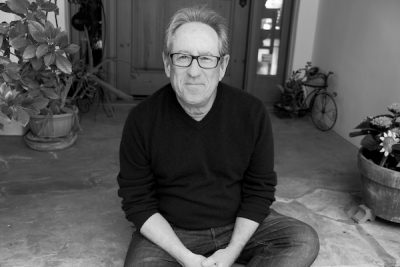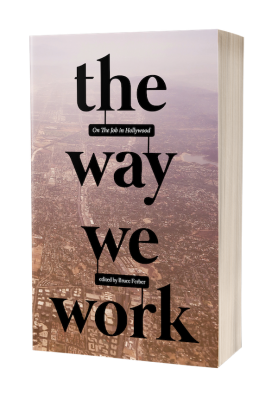Blogs

A window into the imagination and insanity of Hollywood
(Editor's Note: Bruce Ferber is the editor of the anthology The Way We Work: On the Job in Hollywood; a novelist; and an Emmy-nominated comedy writer and producer whose credits include Bosom Buddies, Growing Pains, Sabrina, the Teenage Witch, Coach, Dan vs. and Home Improvement, where he served as executive producer and showrunner. In 2014, he keynoted the Erma Bombeck Writers' Workshop.)
Q: What are the origins of The Way We Work: On The Job In Hollywood?
A: Many years ago, I had the idea to do a documentary called One Hollywood Story. In it, people in the entertainment business would recount their favorite, perhaps most outrageous, career moment. As I assembled a list of possible interviewees, I realized that the finished film would be an hour and a half of talking heads, most of which didn't look like the heads of Bradley Cooper or Jennifer Lawrence. The way to combat the lack of visual excitement would be to break up the interviews with clips from the individual careers, but unfortunately such a gambit would require paying exorbitant rights fees to the studios and networks. Idea shelved. Until... I wrote my essay, "Bright Lights, B-City." The subject matter took me back to my start in the business and all the disparate forces that came together to form a career. The colorful stories they produced got me thinking about the stories I'd heard from many of the writers with whom I'd worked over the years. I began to explore the idea of reconceiving my documentary for print.
Rather than talking into a camera, writers could do what they do best - craft essays about key moments in their Hollywood careers. As I continued to examine the possibilities, Studs Terkel's Working crept into my consciousness. What if, in Terkelesque fashion, I included workers from all aspects of the business, right down to the crew people who never got to tell their stories and whose jobs remained a mystery to the general public?
Q: In assembling this incredible array of above-and-below-the-line industry pros, what stood out to you from their stories?
A: The most universal and impressive thing I found was the passion with which people approach their jobs. As uncertain as the business can be, their sense of professionalism is unwavering.
Q: Several contributors make reference to catching "the bug" of the entertainment industry. What is it? And how do we know if we have it?
A: It's a sickness, most easily identified by symptoms of raging masochism. In truth, the bug is different for different people. Some just want to be stars, but they'd better have the talent to back it up - or be named Kardashian or PewDiePie. For others, the bug is a burning desire to create. And what could be better than a career in which you get paid for making art? If you're willing to make the necessary sacrifices, you know you've got the bug.
Q: What is it about telling stories for film and television that remains so powerful today?
A: Stories have always been essential to the way in which humans connect. We all have them, we feel better when we get to tell them to others, and we are enlightened when we hear a story from someone else that resonates with us. Film and television, of course, tell these stories visually, often with elaborate sound effects to enhance the experience. We live in a loud culture where people sit back and watch more than they read and contemplate, so when it comes to power, film and television reign supreme.
Q: Tell us about your own journey as a veteran writer on sitcoms like Home Improvement and Sabrina The Teenage Witch. Was it luck? Hard work? Or both? And how did that lead to where you are as a writer today?
A: It is always a combination of hard work and being in the right place at the right time. I struggled a bit in the early stages of my career, so I really appreciated the opportunity to grow as a writer and producer when it was given to me. Prior to Home Improvement I had been the number two person in the chain of command, but I'd never run a show. Luckily, I'd picked up plenty of knowledge from the best and worst showrunners who'd hired me over the years, so I was prepared when my time came to be the one in the hot seat. The job proved as challenging as I'd imagined, but even more rewarding. Then, after having worked for decades on other people's shows, I became determined to rediscover my own voice as a writer. Without all those years in the trenches, I don't know that I would have been as dogged in my pursuit of writing novels.
Q: If the industry is so competitive and films are so difficult to make, why do it at all?
A: Because without it, we'd all be lawyers and accountants. If you can be a doctor, I say go for it. I'm looking for a good ENT.
Q: What are the top three pieces of advice you might give to someone just entering the entertainment industry today?
A: 1. Do a lot of soul searching - why you want it and what you're willing to give up to get there.
2. Learn as much as you can about your chosen area of expertise - whether it be at a film school, making your own short films, or writing you're a** off and getting your work around.
3. Be the kind of person other people want to work with. I've put together writing staffs that can spend up to 60 hours a week together. The first thing to get cut are the annoying personalities.


